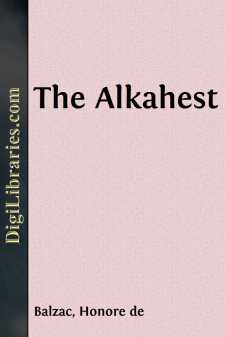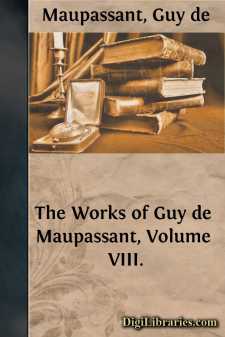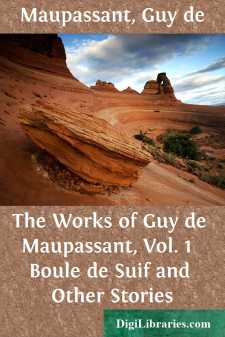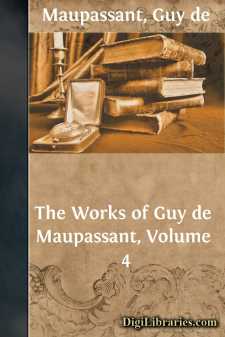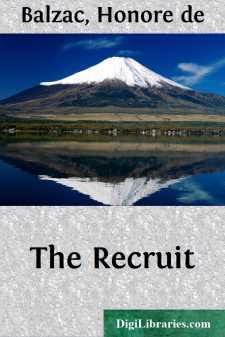Literary Collections
- American 84
- Ancient, Classical & Medieval 14
- Asian 1
- Australian & Oceanian 1
- Canadian 55
- Continental European
- English, Irish, Scottish, Welsh 179
- Essays 160
- General 24
- Letters 46
- Middle Eastern 1
Continental European Books
Sort by:
by:
Theodor Fontane
THE LIFE OF GUSTAV FREYTAG By ERNEST F. HENDERSON, PH.D., L.H.D. Author of A History of Germany in the Middle Ages; A Short History ofGermany, etc. It is difficult to assign to Gustav Freytag his exact niche in the hall of fame, because of his many-sidedness. He wrote one novel of which the statement has been made by an eminent French critic that no book in the German language, with the exception of...
more...
by:
Honore de Balzac
CHAPTER I There is a house at Douai in the rue de Paris, whose aspect, interior arrangements, and details have preserved, to a greater degree than those of other domiciles, the characteristics of the old Flemish buildings, so naively adapted to the patriarchal manners and customs of that excellent land. Before describing this house it may be well, in the interest of other writers, to explain the...
more...
by:
Honore de Balzac
A PRINCE OF BOHEMIA "My dear friend," said Mme. de la Baudraye, drawing a pile of manuscript from beneath her sofa cushion, "will you pardon me in our present straits for making a short story of something which you told me a few weeks ago?" "Anything is fair in these times. Have you not seen writers serving up their own hearts to the public, or very often their mistress' hearts...
more...
by:
Kuno Francke
BISMARCK AS A NATIONAL TYPE[1] BY KUNO FRANCKE, PH.D., LL.D., Litt.D. Professor of the History ofGerman Culture, Harvard University. No man since Luther has been a more complete embodiment of German nationality than Otto von Bismarck. None has been closer to the German heart. None has stood more conspicuously for racial aspirations, passions, ideals. It is the purpose of the present sketch to bring out...
more...
OF "THE NOVEL" do not intend in these pages to put in a plea for this little novel. On the contrary, the ideas I shall try to set forth will rather involve a criticism of the class of psychological analysis which I have undertaken in Pierre et Jean. I propose to treat of novels in general. I am not the only writer who finds himself taken to task in the same terms each time he brings out a new...
more...
by:
Honore de Balzac
I. ALL ELECTIONS BEGIN WITH A BUSTLE Before beginning to describe an election in the provinces, it is proper to state that the town of Arcis-sur-Aube was not the theatre of the events here related. The arrondissement of Arcis votes at Bar-sur-Aube, which is forty miles from Arcis; consequently there is no deputy from Arcis in the Chamber. Discretion, required in a history of contemporaneous manners and...
more...
by:
Gustave Flaubert
CHAPTER I THE CURSE Julian's father and mother dwelt in a castle built on the slope of a hill, in the heart of the woods. The towers at its four corners had pointed roofs covered with leaden tiles, and the foundation rested upon solid rocks, which descended abruptly to the bottom of the moat. In the courtyard, the stone flagging was as immaculate as the floor of a church. Long rain-spouts,...
more...
The first aim of art, no doubt, is the representation of things as they are. But then things are as our eyes see them and as our minds make them; and it is thus of primary importance for the critic to distinguish the precise qualities of the eyes and minds which make the world into imaginative literature. Reality may be so definite and so false, just as it may be so fantastic and so true; and, among...
more...
Count Eustache d'Etchegorry's solitary country house had the appearance of a poor man's home, where people do not have enough to eat every day in the week, where the bottles are more frequently filled at the pump than in the cellar, and where they wait until it is dark before lighting the candles. It was an old and sordid building; the walls were crumbling to pieces, the grated, iron...
more...
by:
Honore de Balzac
THE RECRUIT At times they saw him, by a phenomenon of vision or locomotion,abolish space in its two forms of Time and Distance; the formerbeing intellectual space, the other physical space. Intellectual History of Louis Lambert. On an evening in the month of November, 1793, the principal persons of Carentan were assembled in the salon of Madame de Dey, where they met daily. Several circumstances which...
more...



